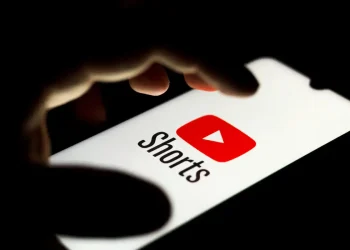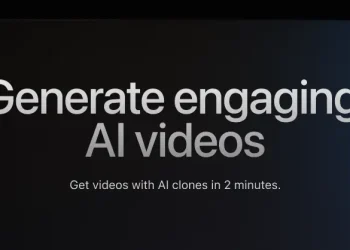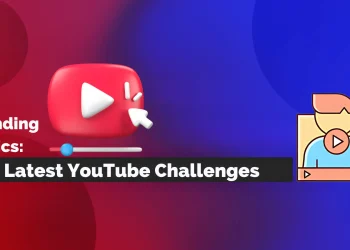Did you know that influencer marketing can bring in an amazing $5.78 for every dollar spent? This industry is booming and expected to grow even more by 2025. Companies are turning to AI in influencer marketing to boost their efforts and get better results. AI helps analyze social media, track campaign success, and create content that hits the mark. This is changing how brands reach out to people, making campaigns more engaging and measurable.
AI plays a key role in influencer marketing. It helps brands make a bigger impact and tackle issues like fake influencers and measuring success. This mix of tech and marketing opens new doors for companies wanting to stay true to their brand while using data for better influencer marketing strategies. Tools like Sprinklr’s Audience Insights make sure content speaks directly to each influencer’s followers. For more on using AI for better content, check out this helpful guide: optimize engagement with AI-powered content recommendations.
Key Takeaways
- AI significantly reduces influencer fraud, enhancing trust in campaigns.
- Virtual influencers are gaining traction, with over 60% of users engaging with them.
- AI provides detailed performance tracking and ROI measurement for campaigns.
- Brands are increasing their budgets for influencer marketing in anticipation of growth.
- AI tools facilitate better audience engagement through data-driven content creation.
- Maintaining authenticity in influencer partnerships leads to more effective marketing.
Introduction to AI in Influencer Marketing
AI and influencer marketing have changed the game in digital marketing. Brands now aim to build real connections with customers, and AI helps a lot. For example, Pulse Advertising started using AI in 2019 to improve their creative work and how they run campaigns.
AI gives deep insights into what audiences like, beating old-school methods. It helps marketers understand what consumers want and what’s trending. By looking at big data, AI picks the right influencers for brands, helping them reach their audience well.
AI also excels in making campaigns better. It watches in real-time and changes strategies based on things like how people engage with ads and how many sales happen. This quick adjustment leads to more money made and smarter spending. Agencies that use AI well quickly adapt to new trends to hit their goals on time.
The influencer marketing market is getting bigger, reaching $16.4 billion in 2022. Using AI is becoming more common. When done right, AI can really boost how well brands are seen and make campaigns more effective. Tools like Upfluence and Influsoft are key in finding influencers, managing them, and predicting how well campaigns will do.
In short, as digital marketing keeps changing, using AI in influencer marketing is a key strategy. This tech helps marketers create new and interesting campaigns. It also keeps an eye on important ethical issues like protecting data and being open about how things work.
What is Influencer Marketing?
Influencer marketing is a key strategy for promoting brands. It involves working with influencers who have a strong following in certain areas. Brands use these influencers to get their products noticed and increase sales through real recommendations.
This strategy is more than just endorsements. It focuses on the brand-influencer relationship, built on trust and real engagement. When influencers share a brand’s values, they can truly talk about it to their followers. This builds trust and changes how people act towards the brand.
The influencer marketing industry has grown a lot, reaching $16.4 billion in 2022. But, there are challenges too. About 70% of brands worry about influencer fraud, making it hard to use social media effectively. It shows how important it is to pick influencers who really shape what people think.
Figuring out if influencer marketing works is tough for about 30% of brands. They find it hard to see the benefits. Using AI in influencer marketing helps. AI tools help brands see if their goals match the audience and understand their influencers better.
| Metrics | Influencer Marketing Insights |
|---|---|
| Industry Growth | $16.4 Billion in 2022 |
| Concerns Regarding Influencer Fraud | 70% of brands |
| Challenges in Measuring ROI | 30% of brands |
AI tools are key in making influencer marketing work better. They track important things like brand mentions and how many people are buying. These tools also help with following contracts and guessing how influencers will do in the future. Knowing how to work with influencers is crucial for success in this changing field.
Current Trends in AI-Driven Influencer Marketing
In the fast-changing world of influencer marketing, AI is becoming key. Over 60% of brands now plan to use AI in their influencer marketing. This shift is because AI helps make influencer campaigns more precise and efficient.
Automated Influencer Discovery
Automated tools are a big deal in finding influencers. These AI tools quickly spot influencers that match a brand’s goals. They look at how engaged followers are, helping brands work with the best influencers. This makes sure campaigns work better than ever.
Influencer Fraud Detection
With more brands working with influencers, finding fake followers is a big problem. AI helps spot these fakes and check if engagement is real. This keeps brands safe from losing money to fraud. Thanks to AI, fake activities have gone down a lot.
Content Creation Optimization
AI makes making content for influencers better. It helps marketers know what their audience likes. Using data, they create content that gets more engagement. This way, brands connect better with their audience and do better in their campaigns.
As companies use AI more, they’ll see more progress in finding influencers, fighting fraud, and making content better. For more on how AI helps in marketing, check out this article.
| Trend | Statistic |
|---|---|
| Brands integrating AI | 60%+ |
| Marketers using social media analytics | 55.8% |
| Campaigns with virtual influencers | 25% |
| Micro-influencer engagement rate | 3.86% |
| Overall average engagement in influencer marketing | 2.05% |
Benefits of AI in Influencer Marketing Strategies
AI has changed how brands use influencers, offering new ways to boost their campaigns. It saves time and effort and helps get a better return on investment. This has a big impact on marketing.
Time and Effort Optimization
AI makes influencer marketing easier by automating many tasks. It helps brands quickly find the right influencers by analyzing data. This lets marketing teams focus on being creative instead of doing boring work.
Brands save a lot of time and effort in managing and running campaigns. This is a big win for them.
Targeted Campaigns
AI can look at consumer data to make influencer campaigns more targeted. This means brands can reach the right people more effectively. AI helps brands know the best content to use and when to post it.
This leads to more people engaging with the brand. AI helps brands stay ahead of trends and meet what their audience wants. This builds stronger connections with customers.
Improved Return on Investment
Using AI, brands see a better return on their influencer marketing. AI gives real-time updates on how campaigns are doing. This lets brands make quick changes to get better results.
AI also makes complex data easy to understand. This helps marketers make smart choices that improve their campaigns. These insights help plan and execute campaigns better, making influencer partnerships more profitable.
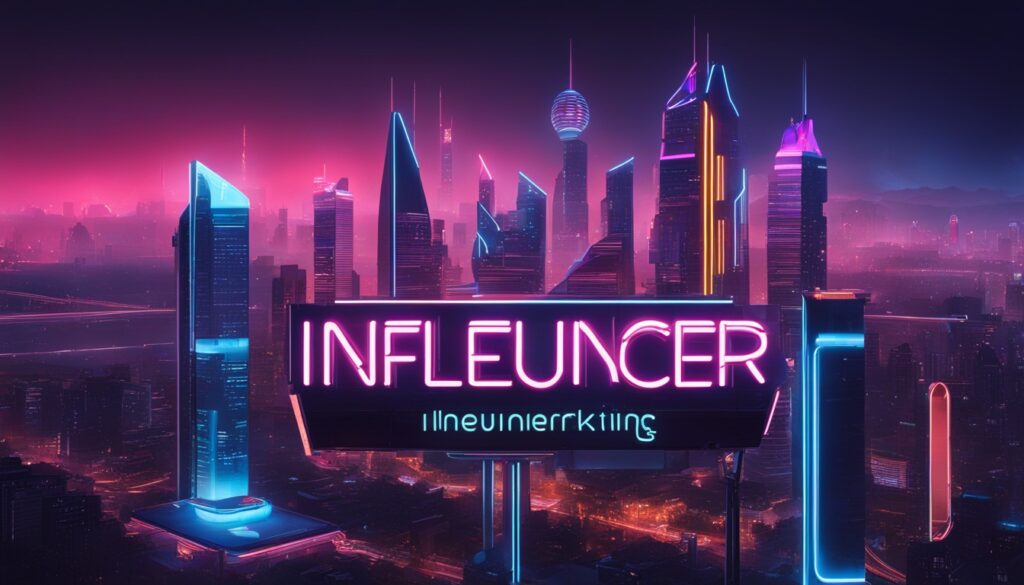
AI in Influencer Marketing: Key Technologies
Advanced technologies have changed influencer marketing. They let brands use data to make their campaigns better. Machine learning, natural language processing, and deep learning are key tools. They help shape strategies and results in this competitive field.
Machine Learning for Influencer Campaigns
Machine learning helps marketers predict trends and pick the right influencers. It looks at a lot of data to find patterns. This has led to a big improvement in influencer marketing for over 37% of marketers.
Natural Language Processing for Influencers
Natural language processing is crucial for understanding what people think on social media. It helps marketers see how well their content is doing. About 50.4% of marketers use this tech to pick the right content and influencers.
Deep Learning for Influencer Marketing
Deep learning gives marketers deep insights into how influencers work and what their followers like. This helps with making smart choices about content and platforms. Nearly 50% of marketers say they need better predictive analytics to improve their campaigns.
| Technology | Key Benefits | Usage Percentage |
|---|---|---|
| Machine Learning | Trend prediction, campaign optimization | ~37.4% |
| NLP | Sentiment analysis, engagement monitoring | 50.4% |
| Deep Learning | Predictive analytics, behavioral understanding | ~48.7% |
The Role of AI in Campaign Performance Measurement
AI is changing how brands check their influencer marketing success. It uses advanced tech to give quick insights into how well campaigns are doing. With AI analytics, this process is faster and more accurate.
Real-Time Analytics and Insights
AI-powered platforms offer real-time analytics for brands. They look at huge amounts of data to track things like how engaged people are and what they think. This lets marketers make quick changes to get better results.
More brands are using influencer marketing, so having accurate data is key to stay ahead.
ROI Correlation with Campaign Data
AI helps brands see how well their campaigns make money. It connects real-time data with past results to show the return on investment. This is important for deciding if spending on influencers is worth it and planning for the future.
AI looks at trends and checks how credible influencers are. This gives marketers important insights to shape their strategies.
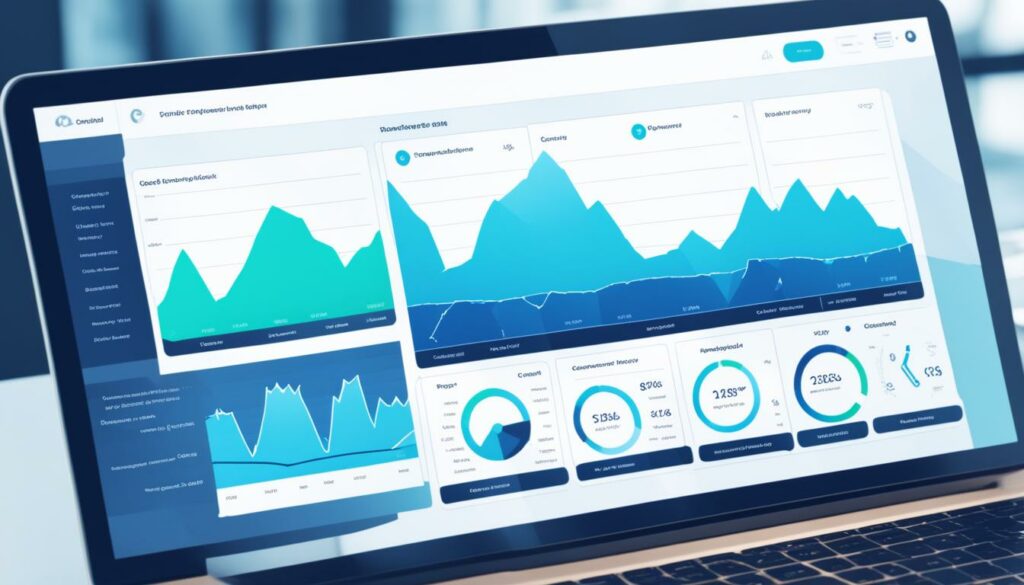
| Metrics | AI Analytics Advantage | Traditional Analytics |
|---|---|---|
| Engagement Tracking | Real-time updates on follower growth and interactions | Delayed reporting, often requiring manual compilation |
| Audience Sentiment | Sentiment analysis using AI algorithms | Dependent on surveys and feedback forms |
| Influencer Credibility Assessment | Automated analysis of engagement patterns | Evaluated through subjective metrics |
| ROI Measurement | Correlation of current and past campaign performance | Vague profitability assessments |
Challenges in Traditional Influencer Marketing
In influencer marketing, marketers often face big challenges. Finding influencers who connect with their audience can be hard. It’s tough to make sure these partnerships work well and match the brand’s values.
Difficulty in Finding Relevant Influencers
Finding influencers that fit with a brand and appeal to the right customers is hard. Many marketers use old methods and tools, which can lead to poor matches with their audience. This makes it hard to know if influencers really connect with their followers.
Using advanced AI technology can help. It gives deeper insights into what audiences like and who they follow.
Issues with Engagement Metrics
Traditional engagement metrics can be misleading. Brands focusing on likes and shares might miss the mark. This can make it seem like an influencer is doing well when they’re not.
This issue means marketers need to look deeper into how well campaigns are doing. They should focus on meaningful interactions, not just numbers.
AI-Powered Tools for Influencer Marketing
AI tools are changing how brands work with influencers. They make things more efficient and save money. Marketers can focus on strategy instead of doing boring tasks.
Examples of Leading AI Tools
Many software tools are changing the game in influencer marketing. For example, Meta has created AI chatbots that look like stars like Paris Hilton and Snoop Dogg. This opens up new ways to market products.
HubSpot and InVideo help creators make content that grabs attention on social media. Upfluence is an all-in-one platform for influencer marketing, starting at $478. It has tools for finding influencers, managing relationships, and tracking campaigns.
How AI Tools Streamline Influencer Management
AI tools make managing influencers easier. For instance, VN Secure checks influencer content automatically. This saves time and ensures content meets brand standards while avoiding copyright issues.
As influencer marketing grows, AI tools are key for managing relationships and tracking campaigns well.
Case Studies: Successful AI-Driven Influencer Campaigns
Case studies show how brands use artificial intelligence to change their marketing. They’ve seen big wins by using AI in their plans. These campaigns get more people involved and reach more people.
Example 1: AI-Optimized Skincare Campaign
Scotch & Soda launched an AI-optimized skincare campaign. It brought in more followers and got more people talking. By picking the right influencers, they drew in a younger crowd. AI helped them grow their audience and make their brand more visible.
Example 2: Utilizing Virtual Influencers in Marketing
LOOKFANTASTIC used virtual influencers in their marketing. This led to a big jump in fans and user content. Their sales went up, proving virtual influencers can tell brand stories well. This shows how virtual influencers can build strong connections and bring in big returns.
Best Practices for Implementing AI in Influencer Marketing
Using AI in influencer marketing can greatly improve results. But, it’s important to follow best practices. This means setting clear goals and building real connections with influencers.
Setting Clear Campaign Goals
Setting clear goals is key for influencer marketing. It helps businesses know what they want to achieve. This makes it easier to pick the right influencers and use AI to find the best ones.
AI looks at deeper metrics like how engaged people are and who they are. This helps make smarter choices. The end result is a campaign that really speaks to its audience.
Maintaining Authentic Relationships with Influencers
It’s vital to have real connections with influencers. These connections build trust and create content that people can relate to. When influencers truly believe in a brand, they make content that grabs their audience’s attention.
AI tools help keep an eye on these relationships. They make sure they stay true while also improving how well they work. Keeping up with feedback and engagement helps keep these relationships strong. This leads to campaigns that really hit home.
| Best Practice | Description | Benefits |
|---|---|---|
| Clear Goal Setting | Establish measurable objectives for campaigns. | Increased efficiency and focus. |
| Data-Driven Decisions | Utilize AI to analyze metrics beyond basic follower counts. | Enhanced targeting and campaign success rates. |
| Authentic Engagement | Develop genuine relationships with influencers. | Improved trust and audience connection. |
| Continuous Monitoring | Regularly review campaign performance and influencer relationships. | Ability to pivot strategies based on real-time data. |
Conclusion
AI is changing influencer marketing fast, making it more effective for brands to reach their audience. The industry is worth $21 billion now, and AI looks set to keep growing its role. Big companies like Amazon, Google, and Meta are investing in AI to make ads better and improve results.
Looking to 2025, AI will play a big part in shaping marketing campaigns. AI can find the right influencers and make content that speaks directly to people. This could change how we measure engagement. AI also brings new challenges, like the rise of virtual influencers, but it also offers cheaper and smarter ways to market.
AI is transforming creative industries, including influencer marketing. It’s important to think about ethics, like being open and protecting data. This way, AI and human creativity can work together well. Brands that use these new strategies will likely do better, make more money, and connect with their audience in a deeper way.
FAQ
How does AI enhance influencer marketing strategies?
AI boosts influencer marketing by using smart algorithms to find the right influencers. It also helps create better content and gives insights on how well campaigns are doing. This means targeting the right audience and getting more people involved.
What role does machine learning play in influencer campaigns?
Machine learning is key in influencer campaigns. It predicts trends, checks how good influencers will be, and makes campaigns better based on past results. This helps marketers make smarter choices.
How does natural language processing support influencer marketing?
Natural language processing looks at what people are saying online and how they feel about brands. It gives insights into how well brands are doing and how engaged their audience is. This helps brands make their messages more effective.
What is the benefit of automated influencer discovery?
Automated influencer discovery uses AI to find influencers that match what a brand wants quickly. It looks at who they reach and how they interact with their followers. This ensures brands partner with influencers who are a good fit.
How does AI help in influencer fraud detection?
AI is great at spotting fake followers and unnatural engagement. Using AI algorithms helps avoid the problems that come with working with influencers who aren’t genuine. This makes sure brands get a fair return on their investment.
Can you give examples of AI tools used in influencer marketing?
Top AI tools like Sprinklr and Aria help find influencers, create content, and track how well campaigns are doing. They make influencer marketing easier and let marketers focus on the big picture.
What are some challenges traditional influencer marketing faces?
Old-school influencer marketing has trouble finding the right influencers fast and measuring how well they’re doing. Relying too much on looks-only metrics can lead to bad strategies and wasted resources.
What are the key technologies driving AI in influencer marketing?
The main technologies are machine learning, natural language processing, and deep learning. These help with analyzing data, understanding feelings, and predicting what will work best for influencer campaigns.
How does AI impact campaign performance measurement?
AI gives real-time data and insights, letting brands see how campaigns are doing as they happen. By comparing current data with past results, marketers can see what’s working and adjust their plans to get better results.

